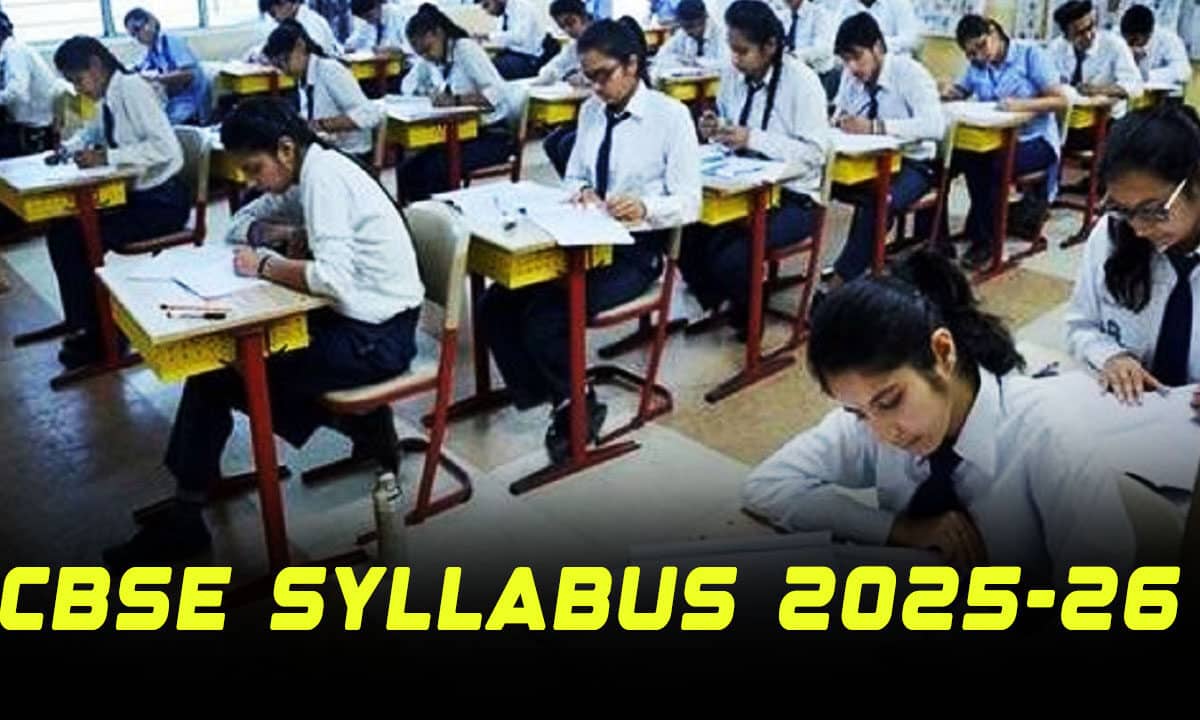CBSE Unveils Major Curriculum Changes for 2025-26 Academic Session
The Central Board of Secondary Education (CBSE) has introduced significant revisions to its syllabus for the 2025-2026 academic year, aiming to enhance student learning experiences across Classes 9 to 12.

The Central Board of Secondary Education (CBSE) has introduced significant revisions to its syllabus for the 2025-2026 academic year, aiming to enhance student learning experiences across Classes 9 to 12. These updates focus on practical learning, skill development, and competency-based assessments.
Table of Contents
Two Board Exams for Class 10 Students
Starting from the 2025-26 session, Class 10 students will have two opportunities to take their board exams—one in February and another in April. This will allow students to improve their scores within the same academic year. However, this proposal is still in its draft stage, awaiting final confirmation.
Meanwhile, Class 12 board exams will continue to be held once a year, with the 2026 exams beginning on February 17.
New 9-Point Grading System
CBSE is moving to a 9-point grading scale for Classes 10 and 12. This system will allocate grades based on student performance, with each grade slot assigned to 1/8th of passed students. This replaces the previous five-point scale and aims to provide a more precise evaluation of student capabilities.
Updated Passing Criteria for Class 10
To pass the Class 10 board exams, students must secure at least 33% in each subject. If a student fails in a core subject like Mathematics, Science, Social Science, or a language but passes in a skill-based or optional language subject, the failed subject can be replaced with the passed skill/language subject for result calculation.
For example, a student failing in Mathematics but excelling in a skill-based subject can use that subject’s marks instead.
Introduction of Skill-Based Subjects
CBSE is increasing its focus on skill-based education by adding subjects such as:
- Computer Applications (Code 165)
- Information Technology (Code 402)
- Artificial Intelligence (Code 417)
Additionally, students must choose either English or Hindi as a mandatory language subject in Classes 9 and 10.
New Electives for Class 12
CBSE has introduced four new skill-based electives for Class 12 students to align with industry demands:
- Land Transportation Associate
- Electronics and Hardware
- Physical Activity Trainer
- Design Thinking and Innovation
These additions aim to equip students with practical knowledge and real-world skills.
Calculators Allowed in Class 12 Accountancy Exams
To ease complex financial calculations, CBSE has decided to permit the use of basic, non-programmable calculators in Class 12 Accountancy board exams starting from the 2025-26 session.
Shift to Real-World Learning
CBSE has instructed schools to adopt new teaching methodologies, including:
- Project-based learning – Encouraging students to solve real-life problems.
- Inquiry-driven education – Promoting curiosity and critical thinking over rote memorization.
- Tech-enabled learning – Incorporating AI tools, digital platforms, and online resources into lessons.
- Collaborative lesson planning – Teachers adapting methods dynamically to suit student needs.
Competency-Based Assessments
Exams will now focus on real understanding and application of knowledge rather than simple memorization. The revised assessment pattern will test:
- Critical thinking
- Analytical skills
- Conceptual clarity
- Practical application of knowledge
This shift aims to better prepare students for higher education and career opportunities.
Accessing the New Syllabus
CBSE has published the detailed syllabi for Classes 9 to 12 on its academic website. Students, parents, and educators are encouraged to review the new curriculum to understand the updated subjects and evaluation methods.
These changes mark a significant step toward a more skill-oriented and practical education system, ensuring students are well-equipped for the future.

